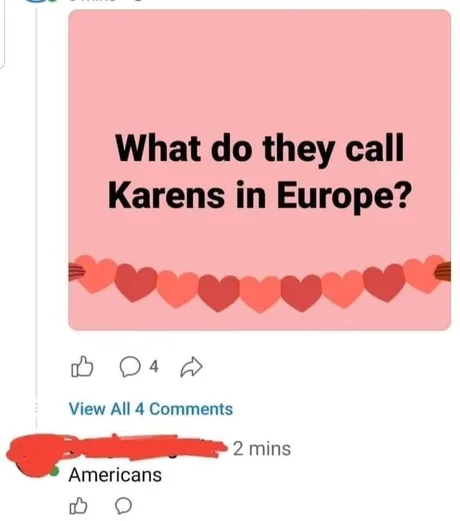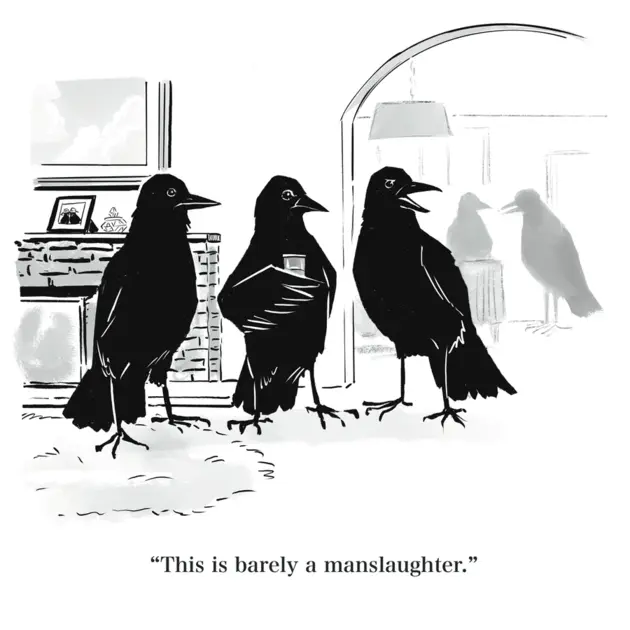My favorite is a complaint of Karens.
They are called “Americans” in Europe

An Americans of Karens?
We have fun collective names. A group of white men is called a podcast, for example.
It’s even easier than that with most people I know
They just describe multiples of individual animals, objects, places or things collectively as just … stuff
Flock of geese? … stuff
A stack of books? … stuff
group of cars? … stuff
A planet? … stuff
A solar system? … stuff
A galaxy? … stuff
A galactic neighbourhood? … stuff
The universe? … stuff
The universe? … stuff
I think George Carlin would say that the universe is a place for your stuff.
No, it’s my stuff, your shit. Whenever it’s mine, it’s stuff. Whenever it’s yours, it’s shit. ie. “Get your shit off the counter so I can put my stuff down.”
Source: ol Gorgie Boy
Where else would I put my stuff?
I never disagree with ol’ Georgie
Sounds like German
plane - flying stuff
Lighter - fire stuff
Vehicle - driving stuff
lol … I’m Indigenous Canadian and I speak my language Ojibway/Cree
This made me realize that the modern things we named with our old language sounds like what you describe
Aircraft -> kah-mee-nah-mee-kook … ‘the thing that flies’
Helicopter -> kah-kee-noo-kah-wah-nas-kee-pee-nik … ‘the thing that turns fast’
When the stuff hits your stuff like a very stuff stuff, that’s stuff.
Yeah I know … like stuff … I dunno … shrugs shoulders and walks away
Do those people count “one, two, many, lots”?
I once knew a person that ended almost every sentence they could with, “and stuff”. I don’t think I’ve ever used the phrase since.
Thus “phenomenology” means αποφαινεσθαι τα φαινομενα – to let that which shows itself be seen from itself in the very way in which it shows itself from itself. And stuff”
― Martin Heidegger

A “fuck that” of humans
Fun fact: The English collective noun for multiple Americans is a “volume”.
Buncha time.
Bunch of coconuts. A lovely one at that.
The Chinese language has different articles depending on what noun it is for. So 一杯可乐 versus 一双筷子.
In German there are three genders of articles that are basically randomly assigned to each noun.
Sometimes these make sense, but not always, and with languages you have to learn arbitrary information.
It feels like the original post is disparaging American English for not using arbitrary nouns for collections of things. As with most differences between American and British English, the American version is simpler and loses very little. ¯\_(ツ)_/¯
English (traditional) versus English (simplified)
So succinct, yet so appropriate 👌
Wicked cools





